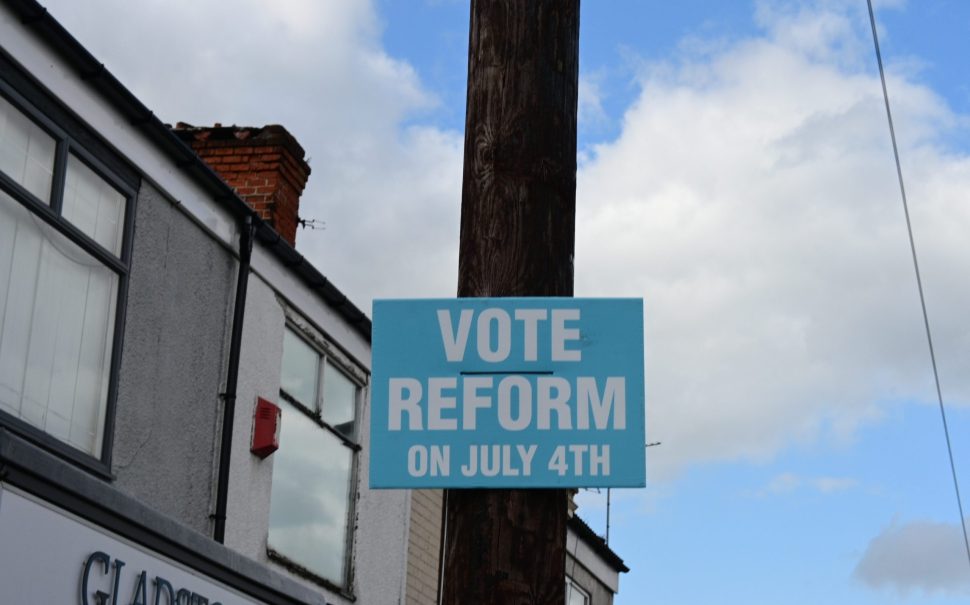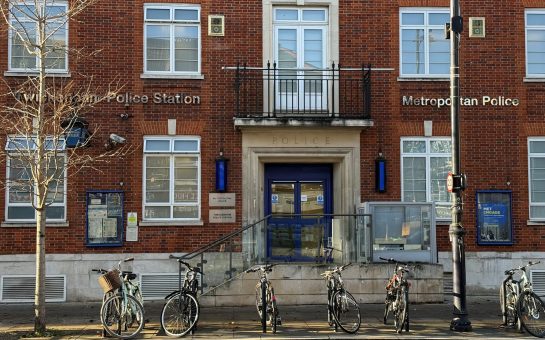After strong results in the local elections earlier this month, Reform UK are on the verge of becoming part of the UK’s political mainstream, new data from YouGov suggests.
The number of respondents who believe Reform is a mainstream party has more than doubled in less than a year, growing from 19% in July 2024 to 44% of respondents in May 2025.
The party’s increasing prominence within UK politics suggests a fundamental shift in the way politics takes place in the UK is underway.
Dr Alex Starling, the party’s candidate in Twickenham in the 2024 general election, said: “I think it’s reflective in the polls – there’s quite clearly a dissatisfaction with what previously were the mainstream parties.
“The public aren’t having that anymore, they’ve been fed untruths and they’re not happy with that.”
In its elections, the UK uses the first-past-the-post electoral system, a plurality voting system where the candidate who receives the most votes, rather than an absolute majority, is elected.
Duverger’s Law, the long-standing principle of political theory, suggests that a plurality system like first-past-the-post means only two parties will ever have legislative control.
The increasing receptiveness to Reform’s messaging may suggest a move towards a multi-party system, where multiple political parties form coalitions in order to form a majority within Parliament.
While the data shows that Labour and Conservatives are clearly above the rest, Reform’s rise over the past 10 months puts them on par with the Liberal Democrats, who have long been considered the country’s third party.
Just under half of the respondents believe the Liberal Democrats are a mainstream party at 47%, while Reform sit at 44%.
All three “mainstream” parties (Labour, Conservatives, Liberal Democrats) saw slight decreases during the time period – Labour went from 93% to 89%, the Conservatives shifted from 85 to 84% while the Lib Dems fell from 50% to 47%.
However, the three “outsider” parties (Reform, Green Party and the Scottish National Party) had increases – Reform shot up from 19% to 44%, while the Greens had minimal increases from 11% to 13% and the SNP’s share increased from 22 to 25%.
While inconsequential at the moment, it may suggest the beginnings of a political revolution in the UK.
Supplementary data showing voting intention in a general election shows both the growing support for Reform alongside the growing dissatisfaction for the Conservatives and Labour.
Labour’s share of votes has decreased from 26% in January, the leading party, to 22% in May, seven percent behind Reform.
Meanwhile, the Conservatives share has decreased from 22% to just 16% over the same time period, falling to be the fourth largest party behind Reform, Labour and the Liberal Democrats.
For Starling, the party’s ability to appeal to voters from across the establishment who are disillusioned with the status quo is key to the party’s growth.
He added: “We’ve got a situation where Reform is appealing to people who have previously voted Conservative, you’re seeing it appeal to people who previously would have voted Labour, but are realising that the leadership aren’t thinking about the people and what’s in the best interest of people in this country.
“More and more people are listening to the BBC or watching the Today programme or reading the mainstream press and going ‘do you know what, these guys are lying to me, this is ridiculous’.
“I think the Reform message, or an alternative approach, is resonating with people.”
Feature image “2024 General Election in Kingston upon Hull East Reform UK Poster” by Hullian111 is licensed under CC BY-SA 4.0.





